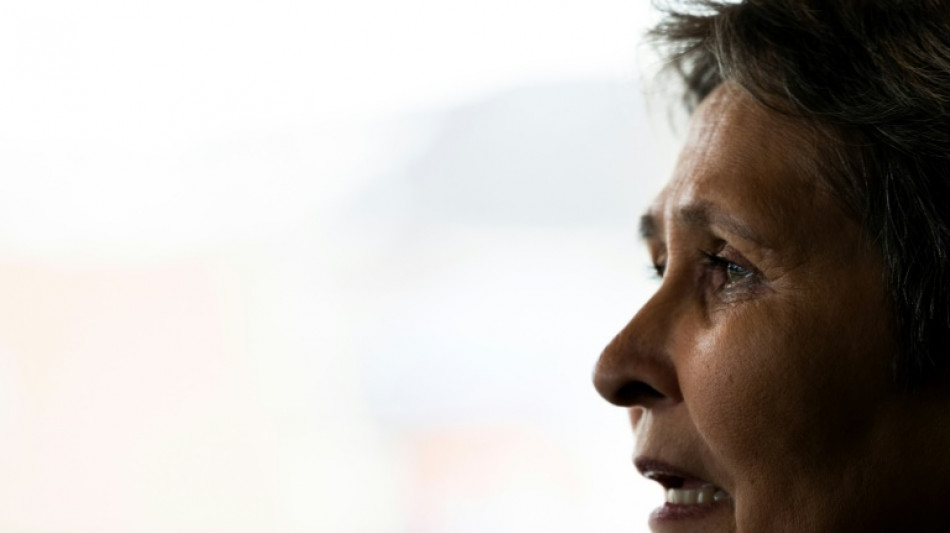
-
 Merino brace sends Arsenal past Slavia in Champions League
Merino brace sends Arsenal past Slavia in Champions League
-
Djokovic makes winning return in Athens

-
 Napoli and Eintracht Frankfurt in Champions League stalemate
Napoli and Eintracht Frankfurt in Champions League stalemate
-
Arsenal's Dowman becomes youngest-ever Champions League player

-
 Cheney shaped US like no other VP. Until he didn't.
Cheney shaped US like no other VP. Until he didn't.
-
Pakistan edge South Africa in tense ODI finish in Faisalabad

-
 Brazil's Lula urges less talk, more action at COP30 climate meet
Brazil's Lula urges less talk, more action at COP30 climate meet
-
Barca's Lewandowski says his season starting now after injury struggles

-
 Burn urges Newcastle to show their ugly side in Bilbao clash
Burn urges Newcastle to show their ugly side in Bilbao clash
-
French pair released after 3-year Iran jail ordeal

-
 Getty Images largely loses lawsuit against UK AI firm
Getty Images largely loses lawsuit against UK AI firm
-
Cement maker Lafarge on trial in France over jihadist funding

-
 Sculpture of Trump strapped to a cross displayed in Switzerland
Sculpture of Trump strapped to a cross displayed in Switzerland
-
Pakistan's Rauf and Indian skipper Yadav punished over Asia Cup behaviour

-
 Libbok welcomes 'healthy' Springboks fly-half competition
Libbok welcomes 'healthy' Springboks fly-half competition
-
Reeling from earthquakes, Afghans fear coming winter

-
 Ronaldo reveals emotional retirement will come 'soon'
Ronaldo reveals emotional retirement will come 'soon'
-
Munich's surfers stunned after famed river wave vanishes

-
 Iran commemorates storming of US embassy with missile replicas, fake coffins
Iran commemorates storming of US embassy with missile replicas, fake coffins
-
Gauff sweeps Paolini aside to revitalise WTA Finals defence

-
 Shein vows to cooperate with France in probe over childlike sex dolls
Shein vows to cooperate with France in probe over childlike sex dolls
-
Young leftist Mamdani on track to win NY vote, shaking up US politics

-
 US government shutdown ties record for longest in history
US government shutdown ties record for longest in history
-
King Tut's collection displayed for first time at Egypt's grand museum

-
 Typhoon flooding kills over 40, strands thousands in central Philippines
Typhoon flooding kills over 40, strands thousands in central Philippines
-
Trent mural defaced ahead of Liverpool return

-
 Sabalenka to face Kyrgios in 'Battle of Sexes' on December 28
Sabalenka to face Kyrgios in 'Battle of Sexes' on December 28
-
Experts call for global panel to tackle 'inequality crisis'
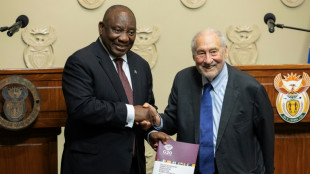
-
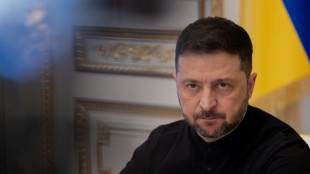 Backed by Brussels, Zelensky urges Orban to drop veto on EU bid
Backed by Brussels, Zelensky urges Orban to drop veto on EU bid
-
After ECHR ruling, Turkey opposition urges pro-Kurd leader's release
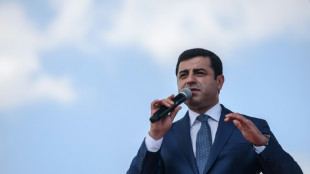
-
 UK far-right activist Robinson cleared of terror offence over phone access
UK far-right activist Robinson cleared of terror offence over phone access
-
World on track to dangerous warming as emissions hit record high: UN

-
 Nvidia, Deutsche Telekom unveil 1-bn-euro AI industrial hub
Nvidia, Deutsche Telekom unveil 1-bn-euro AI industrial hub
-
Which record? Haaland warns he can get even better

-
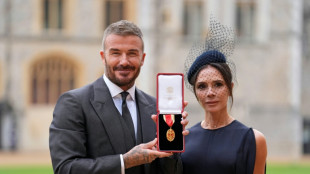 Football star David Beckham hails knighthood as 'proudest moment'
Football star David Beckham hails knighthood as 'proudest moment'
-
Laurent Mauvignier wins France's top literary award for family saga

-
 Indian Sikh pilgrims enter Pakistan, first major crossing since May conflict
Indian Sikh pilgrims enter Pakistan, first major crossing since May conflict
-
Former US vice president Dick Cheney dies at 84

-
 Fiorentina sack Pioli after winless start in Serie A
Fiorentina sack Pioli after winless start in Serie A
-
Oscar-winning Palestinian films daily 'Israeli impunity' in West Bank

-
 Spain's Telefonica shares drop on dividend cut, net loss
Spain's Telefonica shares drop on dividend cut, net loss
-
Fierce mountain storms kill nine in Nepal
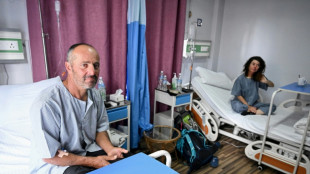
-
 Divisive Czech cardinal Dominik Duka dies at 82
Divisive Czech cardinal Dominik Duka dies at 82
-
Shein vows to cooperate with France in sex doll probe

-
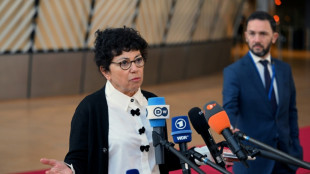 EU in last-ditch push to seal climate targets before COP30
EU in last-ditch push to seal climate targets before COP30
-
Finnish ex-PM Marin says her female cabinet faced torrent of sexism
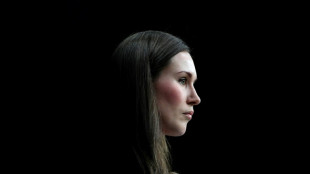
-
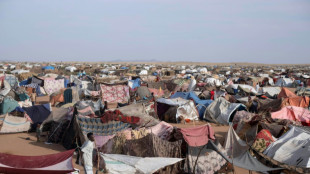 Sudan army-backed council to meet on US truce proposal: govt source
Sudan army-backed council to meet on US truce proposal: govt source
-
BP profit surges despite lower oil prices

-
 Shein vows to cooperate with France in childlike sex doll probe
Shein vows to cooperate with France in childlike sex doll probe
-
National hero proposal for Indonesia's Suharto sparks backlash
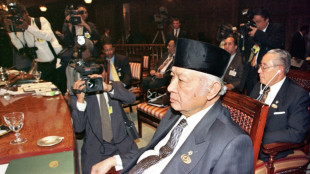

Trauma of Greenland's forced contraception
"I had to spread my legs, and when it was put in it hurt terribly," said Britta Mortensen, who was 15 she when was forced to have a coil, or intrauterine device (IUD), fitted.
Like thousands of young Greenland Inuit, she was the victim of a policy to limit the birth rate in the Arctic territory, which was no longer a colony at the time but still under Danish control.
According to an investigation by Denmark's public broadcaster DR, some 4,500 women were subjected to the procedure.
It was 1974 and Mortensen had just left her family for the first time.
There was no high school in the fishing village of Ilulissat where she lived on the island's western edge, so continuing her studies in Denmark was an opportunity for her.
"I went... to a boarding school and there the headmistress told me: 'You have to get an IUD.' I said no," she recalled, standing in front of the white house where she was born.
The headmistress said: "'Yes, you will get an IUD, even if you say no,'" Mortensen added, the hurt still clear.
Her parents, who were thousands of miles away, were never asked for consent and never informed.
One autumn day, the teenager found herself in front of a doctor ready to have the contraceptive device inserted.
"It was an IUD for women who had already had children, not for young girls the age I was," the now 63-year-old told AFP.
- 'Ashamed' -
After the "violation", Mortensen took refuge in silence, unaware that her fate was shared by other Greenlandic girls in her boarding school in Jutland in western Denmark.
"I was ashamed. I haven't told anyone about it until now."
But Mortensen is now taking part in a debate about what about happened -- albeit timidly and mostly on Facebook, where a group set up by a psychologist who was also a victim, has brought together more than 70 women.
It's a "mutual support group as co-sisters so no one feels alone, especially with the reactivation in the trauma that was repressed for many years," said its creator Naja Lyberth.
It is particularly trying for women who had not been able to have children, she said.
Many women were unaware that they were wearing a contraceptive device, she added, only finding out when Greenlandic gynaecologists started discovering them.
"Typically, it was placed during an abortion, without women being informed about it," Lyberth told AFP.
Historian Soren Rud said the Danish campaign in the late 1960s was part of a lingering colonial mentality that continued even after formal decolonisation in 1953.
This attitude "was marked by ideas of the Greenlander's lack of cultural competences. In contrast to many forms of birth control, IUD did not require any effort from the Greenlandic women in order to be effective," said the associate professor at the University of Copenhagen.
The women's testimonies come at a time when Denmark and Greenland, which became an autonomous territory in 2009, are re-examining their past relationship.
In March, Denmark apologised and paid compensation to six Inuit who were taken from their families in the 1950s to take part in an experiment to build a Danish-speaking elite in the Arctic territory.
Britta Mortensen believes that women who were forced to use contraception also deserve an apology and should also be compensated.
"They should compensate for the harm done to us, the many girls who were forced to wear the IUD," she said.
M.Odermatt--BTB




